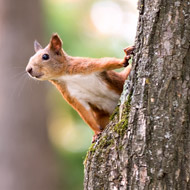Law change benefits endangered animals

Establishing what is normal for a species helps to build a picture of the best ways to care for and conserve others of the same type.
Vets in Jersey will soon be able to perform minor procedures to provide key information about rare and endangered animals.
It has been announced that the island's animal welfare laws will be updated, bringing them in line with modern practices. Currently, for example, vets are only allowed to take blood samples for the purpose of diagnosis or monitoring.
Under the law as it stands, conservation organisations are not allowed to take blood samples to determine what would be 'normal' for an animal of a particular weight, age and species.
Steve Luce, planning and environmental minister, recently agreed to change the Animal Welfare (Jersey) Law to allow this necessary conservation work to be carried out. Establishing what is normal for a species can help conservationists to build up a picture of the best ways to care for and conserve others of the same type. This is particularly true of rare animals.
Organisations working with rare or endangered species can apply for permission to carry out minor procedures that will benefit conservation, helping the future management and survival of a species.



 The Veterinary Medicines Directorate (VMD) is inviting applications from veterinary students to attend a one-week extramural studies (EMS) placement in July 2026.
The Veterinary Medicines Directorate (VMD) is inviting applications from veterinary students to attend a one-week extramural studies (EMS) placement in July 2026.